
Reflections on Mobilization: the review of Russians' attitudes toward mobilization
Introduction
{{margin-small}}
Open Minds Institute investigated the attitudes of Russians toward the mobilization, its preconditions, organizational process, and consequences. We aimed to reveal their experience with the one announced in 2022 to indicate the stance on the probable second wave of mobilization upcoming as Russia prepares for the long war.
In this report, we investigated the perception of the war and mobilization, the assessment of its process, and the factors of its support for Russian respondents.
{{margin-big}}
Executive Summary
{{margin-small}}
- Despite initial anxiety following last year's mobilization announcement, current Russian attitudes toward some of its components are favorable. Although the public was appealing about the lack of training and equipment, the respondents’ assessment of servicemen's provision and preparation is mostly positive. Further, 57.49% believe in mutual support among different units on the Russian side.
- Support for mobilization seems to be influenced by belief in a Russian victory, threats perceived from Ukraine, potential financial gain, and improved personal relationships due to it. However, bettering work relationships can decrease mobilization support, as people may not wish to leave their jobs or bid farewell to colleagues going to the frontline.
- However, fewer than 8% believe the government's claim that mobilized individuals will serve in non-combat roles. The majority understand that mobilization likely means deployment to the war zone.
- 53.47% of respondents support the Russian invasion, yet only 34.08% support mobilization. This attitude gap may reflect propaganda influence and reluctance to participate in the conflict personally. Excluding some financial and career implications, the majority isn’t critically affected by the "special military operation". Interestingly, respondents reported improved relationships with friends and family since the beginning of the “SMO”, although family plans were negatively affected.
- Around 45% see both Ukraine and NATO as threats to Russians' physical security, which points to the effectiveness of Russian propaganda. Regarding economic or symbolic threats, the respondents don't perceive Ukraine's actions (any actions) as a menace. In contrast, nearly 50% perceive NATO as such, presumably due to sanctions.
- Despite the criminalized war criticism in Russia, only 51.62% express total confidence in a future Russian victory, likely reflecting a sense of national identification rather than an unbiased war evaluation.
- Around 40% of respondents are unsure if one can avoid mobilization. The rest splits between believing in or denying such a possibility almost equally. Most believe their relatives and other Russians would respond to mobilization positively, but only 14% think officials' families would act the same. Such opinion reflects a perceived divide between ordinary citizens expected to bear the war's burdens and politicians seen as profiteering and unwilling to fight.
{{margin-big}}
Methodology
{{margin-small}}
Respondents were recruited online. The data were collected on May 24th.
The sample was stratified by sex and age (equal age and sex groups 18-30, 31-44, 45-60 years). The data was cleaned, and the analysis excluded people who did not answer all the questions. The final sample comprised 1021 respondents, 486 women and 535 men. The mean age of the respondents is 36.41, the standard deviation is 11.21. The sample included residents of all federal districts of Russia.
To circumvent any socially acceptable responses to the question on personal attitudes, we phrased the question in a special way: "How do you think most people close to you would react to…?"
{{margin-big}}
Key Findings
{{margin-small}}
Perception of The War and Mobilization
{{margin-small}}
53.47% of respondents endorse the war against Ukraine, but merely a third (34.08%) support mobilization. It can be inferred that Russians, in general, are swayed by propaganda claiming that Ukraine and NATO were planning to attack Russia, and that Russian speakers are being oppressed in Ukraine and need rescuing. However, many people may not be inclined to address these constructed issues personally.

The “special military operation” (”SMO”) somewhat deteriorates the financial situation and career prospects for respondents, but for the majority, it is evidently not critical. There are aspects where, surprisingly, the dynamics appear to have turned positive: relationships with friends and family improved after the commencement of the “SMO,” whereas family plans did not fare as well. Likely, at this stage, the war hasn't affected most Russians personally.
{{margin-small}}
PERCEPTION OF THREAT AND THE "SMO" AIMS
{{margin-small}}
As expected during the war with Ukraine, Russian respondents believe that Ukraine's actions pose a threat to the physical safety of Russians primarily at the frontline. The majority of respondents don't perceive Ukraine as an economic or symbolic threat.
When it comes to NATO, the situation is different. According to 49.66% of the surveyed, the organization threatens the economic situation of Russians (presumably due to sanctions) and is also seen as a symbolic threat. Meanwhile, the perceived threat to physical security from both Ukraine and NATO is roughly 45%, which seems to emphasize the relative effectiveness of Russian propaganda. Propaganda insists that the current war is waged by Russia against NATO, but not Ukraine.
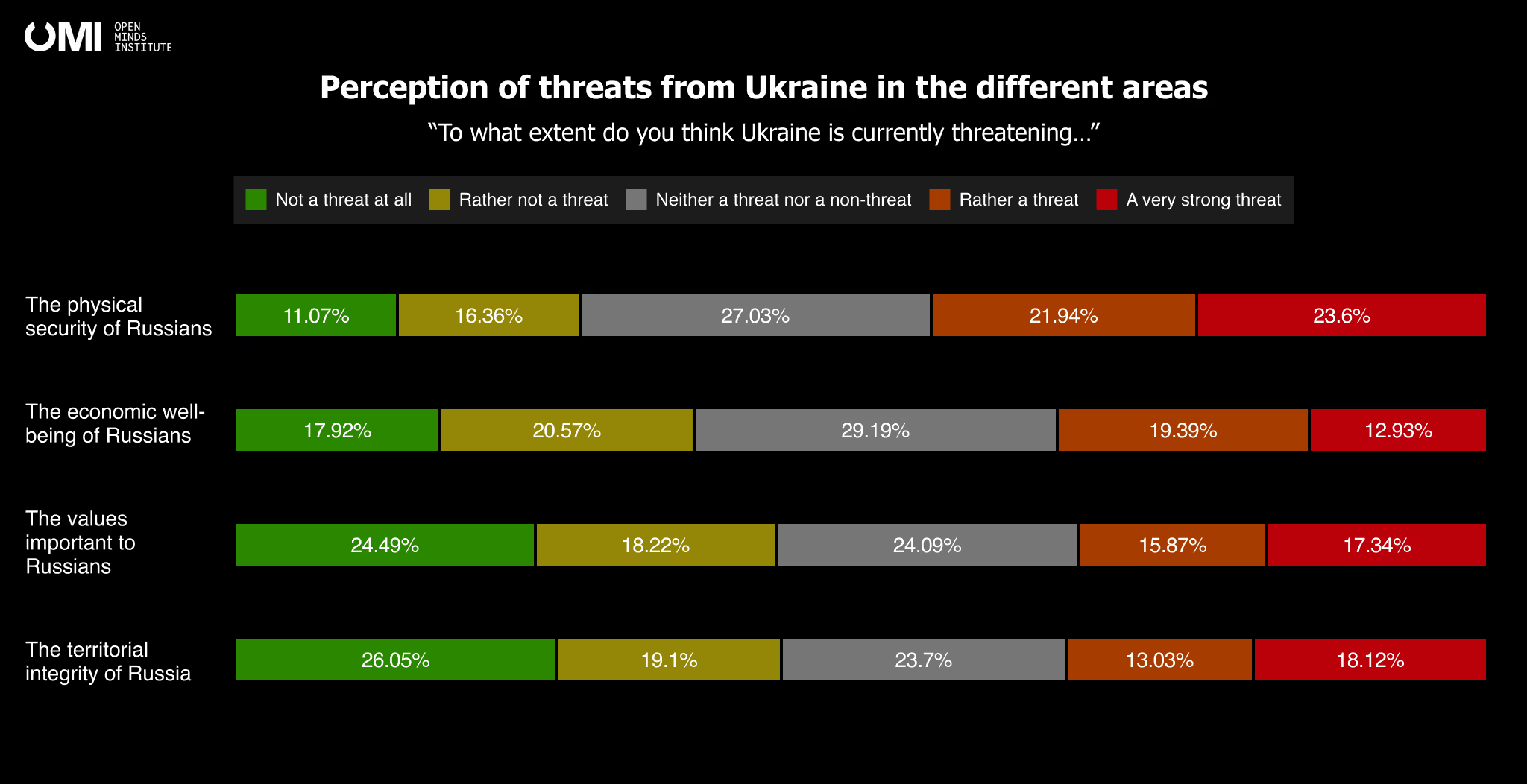
Respondents express optimistic assessments of both the current and the future situation at the frontline. About 53% believe the Russian army is winning or most likely winning in the “SMO.” 66.61% feel confident or somewhat confident about a prospective Russian victory, while 14% think the reverse.
When asked to evaluate the attainability of the war objectives, respondents prioritize the protection of the Russian-speaking population in Ukraine and the physical security of citizens of Russia, including the regions bordering Ukraine. Overall, Russians' attitudes towards the "SMO" are very optimistic. Other objectives, like Russian culture and values preservation, are also perceived as quite achievable.
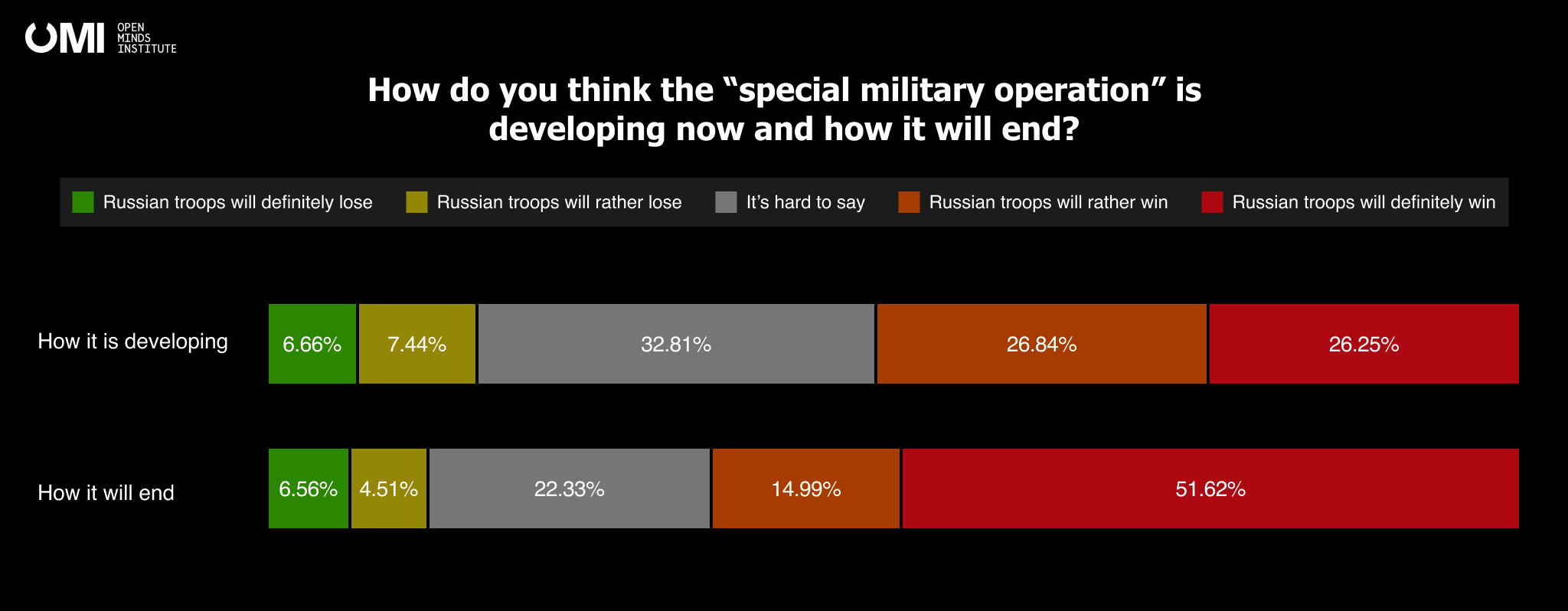
This appears to be an outcome of the impact of propaganda on one hand and an underlying apprehension of expressing views against the authorities' stance on the other, given that criticizing the war is criminalized in the Russian Federation. In total, 51.62% are entirely confident in a future Russian victory, and such a response might reflect less of an unbiased evaluation of the war situation and more of an identification with Russia itself, akin to allegiance to a sports team.
{{margin-small}}
THE ATTITUDES TOWARD THE MOBILIZATION PROCESS
{{margin-small}}
Despite the mobilization announcement on September 21 of 2022, which caused a significant wave of concern among Russians, the respondents' current attitudes toward it are generally favorable. Slightly over 15% complained the officials mobilize "everyone," which may unmistakably suggest a negative assessment of mobilization, at least in terms of its organization.
Fairly positive is the respondents' evaluation of the extent of servicemen's supply and readiness before dispatch to a combat zone, despite the numerous public pleas from the mobilized and their families. They address the Defense Ministry and directly President V. Putin, expressing concerns about soldiers being deployed to the frontline without sufficient training and equipment.
57.49% of respondents believe that combats from different units support and help each other. This sentiment exists despite the fact that essentially different armies are fighting on the Russian side at the moment: the Russian Federation Armed Forces, the Wagner group, the "people's militias" of the "DPR" and "LPR", and Chechen units.

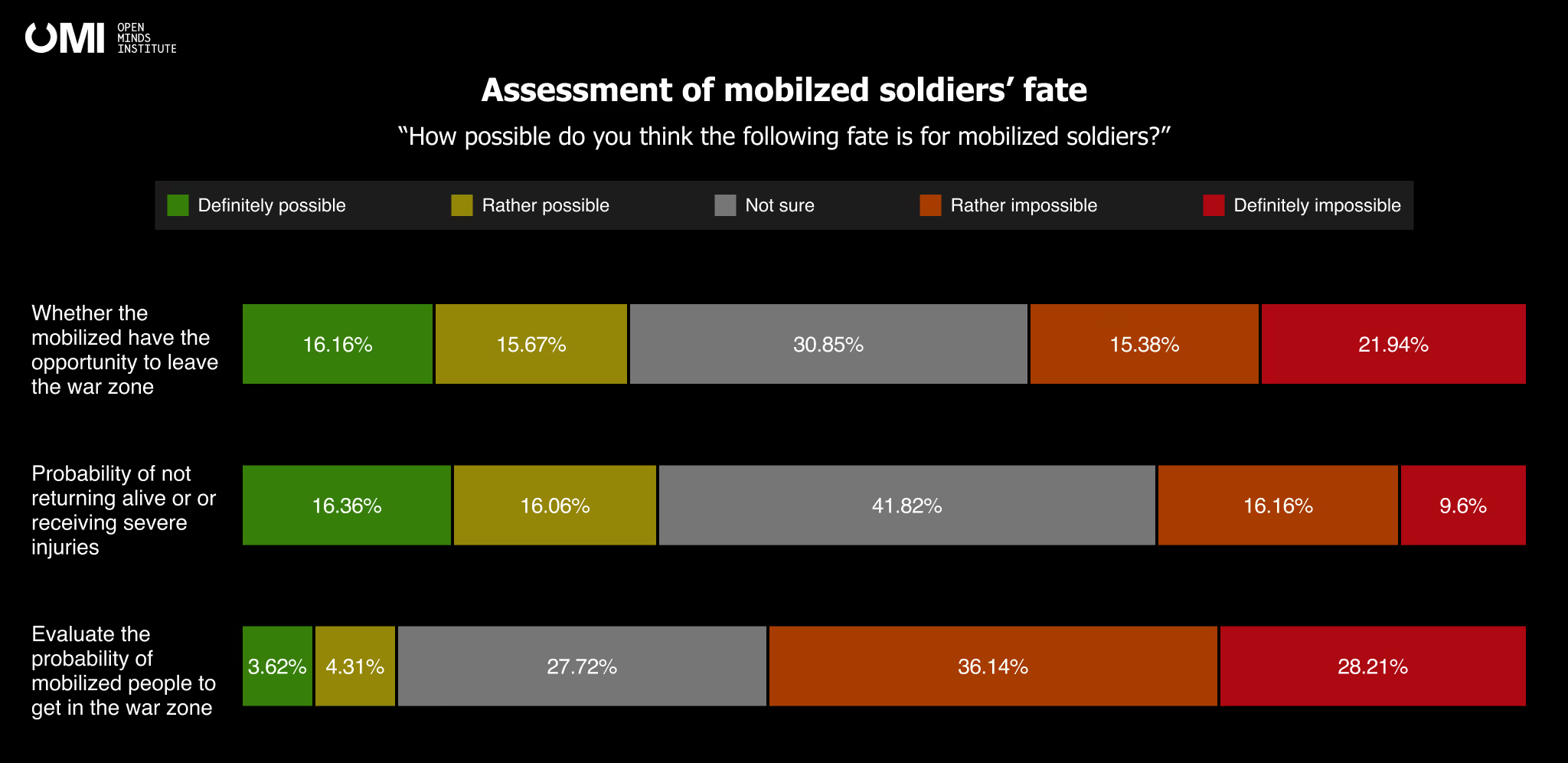
A single area where propaganda efforts seem to have fallen short is the public's skepticism towards the authorities' claims that the mobilized would serve in non-frontline positions, such as guarding warehouses. Fewer than 8% believe in such a scenario, which is a remarkably low number of respondents. The majority acknowledges that being mobilized equates to an almost certain deployment to the war zone.
{{margin-small}}
POTENTIAL FOR EVADING MOBILIZATION AND ITS CONSEQUENCES
{{margin-small}}
Approximately 40% of respondents remain undecided about if an individual can avoid mobilization. Those who are sure it’s possible don’t significantly outnumber those denying the feasibility of avoiding military service and frontline deployment.
We asked the respondents about their thoughts on the penalties for mobilization evaders. They think repressive state sanctions, such as arrest, account blocking, and fines, can be imposed on such Russians. Over 48% are certain or fairly certain that evaders would face imprisonment.
Perhaps, many respondents perceive the threat of mobilization as real and intimidating, and therefore their responses regarding the conditions for the mobilized are positive. Russians don't want to believe that circumstances for the mobilized are dire because they and their loved ones could potentially be in the same dead-end situation.
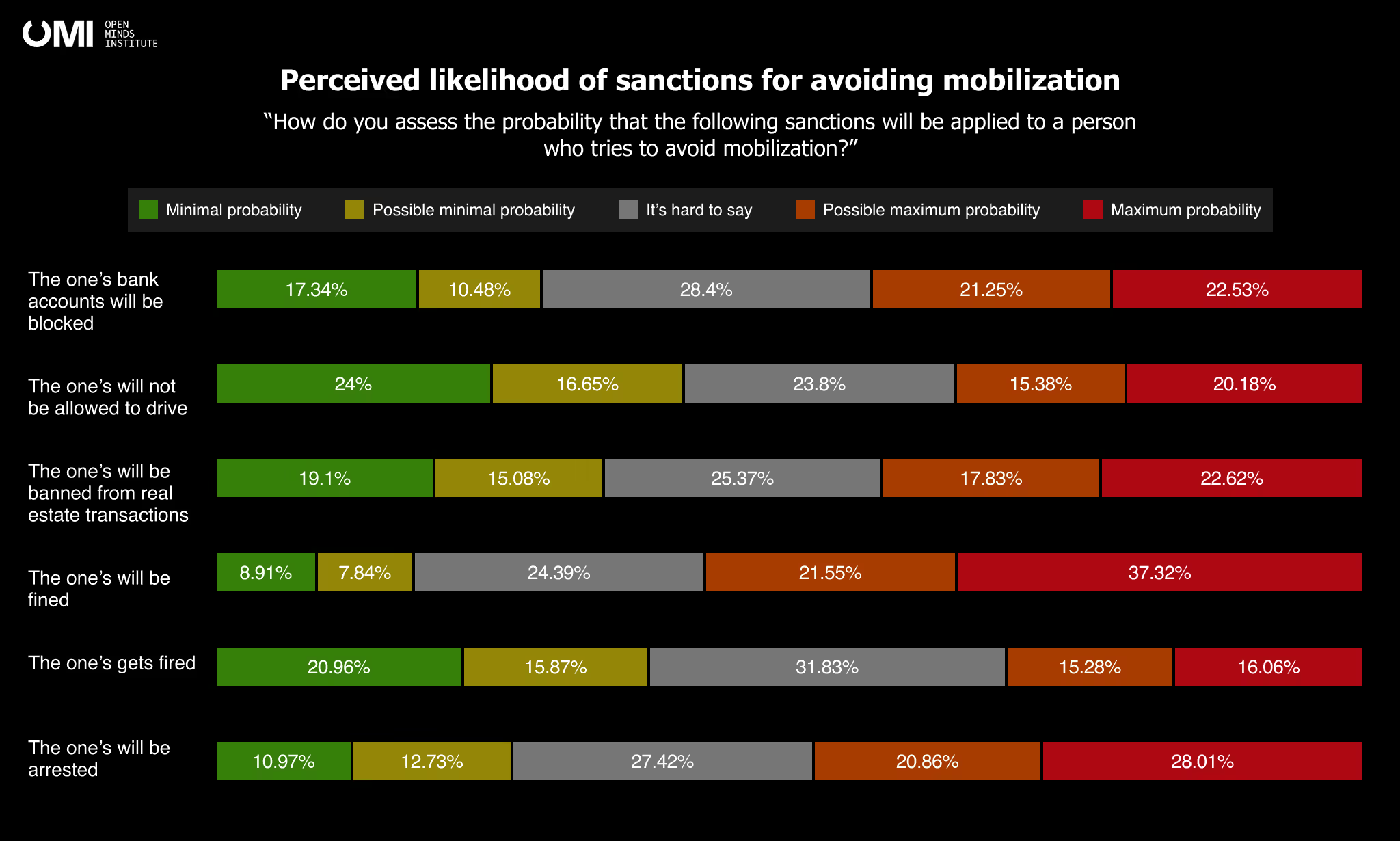
{{margin-small}}
TO Mobilize OR NOT? PERCEPTIONS OF THOSE AVOIDING MOBILIZATION
{{margin-small}}
The majority of respondents believe that their relatives, along with other Russians, will report to the military offices if they are mobilized. Less than 20% think others will attempt to evade mobilization.
Concurrently, only 14% of respondents believe that family members of Russian officials and political elites will go to the frontlines to serve as soldiers. This reality-based perception illustrates a populist divide in Russians’ minds between ordinary citizens, ready to bear the burdens of war for the Motherland when necessary, and politicians profiting from people but unwilling to defend their country on the frontline.
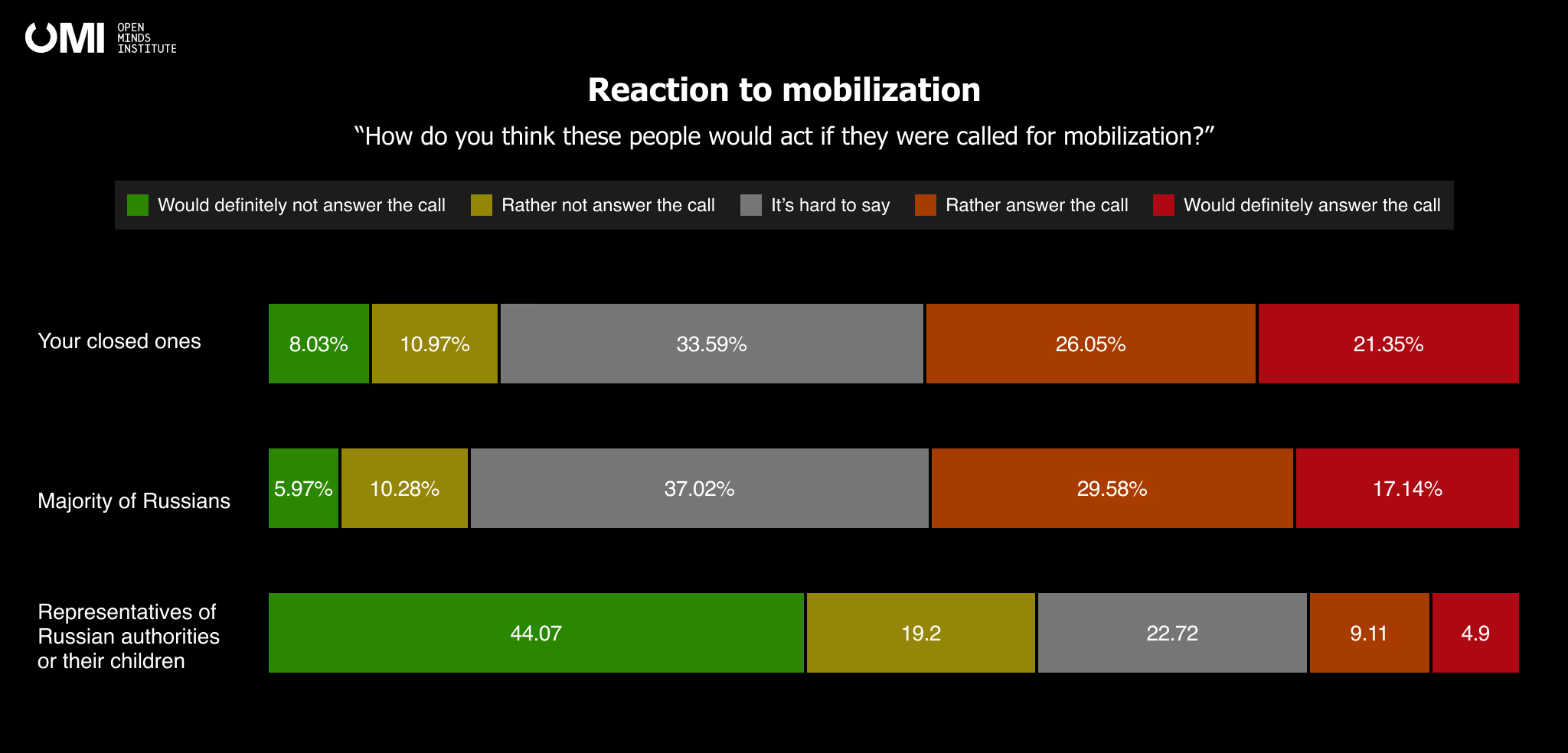
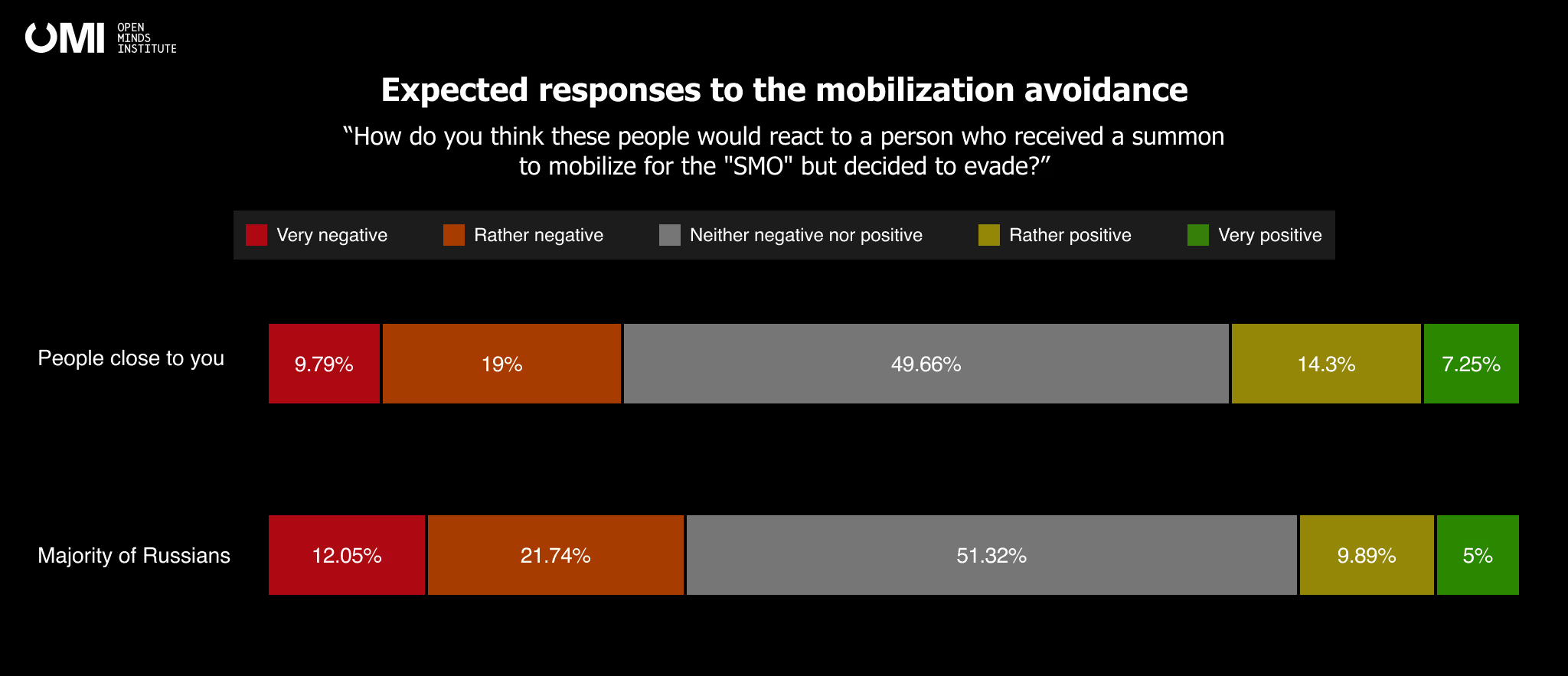
{{margin-small}}
WHAT PREDICTS THE POSITIVE ATTITUDES TOWARD MOBILIZATION?
{{margin-small}}
We examined various predictors of Russian support for mobilization, including:
- the perceived threat level from Ukraine, NATO, and armed factions within Ukraine to the physical security, economic prosperity, and values important to Russians, as well as Russia's territorial integrity as per the respondents' views.
- respondents' understanding of the goals of the "special military operation”, such as: safeguarding the physical safety and economic welfare of Russians, defending the lifestyle and values of Russians, protecting the Russian-speaking population in Ukraine, preserving the Russian language and culture in Ukraine, and securing Russians in the front-line regions adjacent to the military operation zone.
- respondents' views on the current primary focus of mobilization: those with appropriate education and combat experience, suitable men of a particular age, or everyone indiscriminately.
- respondents' evaluation of the success of the ongoing war and its potential outcome (whether the war will culminate in a Russian victory).
- respondents' perspective on the situation of the mobilized: their training status, supply levels, salary, compensation for injury or death, the quality of relationships within units and between commanders and soldiers, the possibility of voluntary demobilization, their chances of survival in the war zone, their psychological and social readiness for civilian life after war, and the likelihood of being in a combat zone.
- potential sanctions for those who were mobilized or received a summons but failed to report to the military recruitment office: such as frozen bank accounts, driving prohibitions, bans on real estate transactions, fines, job termination, or arrests.
- the effect of the "SMO" on respondents' current status and future in areas like financial standing, relationships with relatives, family plans, friendships, professional relationships, career plans, and job opportunities.
- the potential impact of mobilization on respondents or their loved ones in several life aspects: financial situation, relationships with family members, family plans, friendships, work relationships, career plans, and professional opportunities.
Employing hierarchical linear regression, we were able to construct a model that accounted for 44% of the variability (determination coefficient is 0.44) in the respondents' belief that their friends and family would enlist in the military if called upon.
The strongest predictors of readiness to be mobilized include the belief in the Russian army's victory in the "SMO" (β = 0.28), the perception of a threat to Russian values emanating from Ukraine (β = 0.19), high estimated financial compensation to relatives for the death or injury of a soldier (β = 0.17), increased professional opportunities resulting from the "SMO" (β = 0.16), a sense of physical safety threat to Russians posed by armed infiltrators (β = 0.10), and improved relationships with friends upon mobilization (β = 0.10). The latter appears to imply that being mobilized may somehow elevate one's social status within their social circles. Surprisingly, enhanced relationships with coworkers as a result of the invasion negatively impact attitudes towards mobilization (β = -0.12).
The data suggests that individuals' support for mobilization, and their willingness to serve in the army or allow their loved ones to serve, is influenced by several factors. These include the belief in an eventual Russian victory in the war, the perception of a symbolic threat from Ukraine, and potential financial gain, even if it may come at the cost of injury or loss of loved ones. Another significant factor seems to be the potential for improved relationships with friends if one or a family member is mobilized. Conversely, improved relations with work colleagues seem to decrease support for mobilization, possibly because people may not want to leave their jobs or see their colleagues sent to the front lines.
{{margin-big}}
Conclusion
{{margin-small}}
In conclusion, it's evident that the majority of Russians have yet to experience the war's harsh realities. Propaganda narratives portraying Ukraine and NATO as threats to Russia appear to hold significant sway, creating an environment where a large proportion of the population supports the war, even if they are less willing to engage in fighting personally.
Despite some grievances and inconsistencies, belief in the effectiveness of the Russian army and a certain level of faith in the readiness and mutual support of the troops is apparent. The confidence in a Russian victory, perceived threats from Ukraine, and the potential for financial gain and improved social relationships all serve as influential factors for supporting mobilization.
However, there's a growing skepticism towards the government's claim about non-combat roles for mobilized individuals, and a recognition of a perceived disparity between the war's impact on ordinary citizens and political elites. Moving forward, how these perceptions and attitudes evolve as the war continues will be crucial in shaping Russia's societal and political landscape.

.svg)





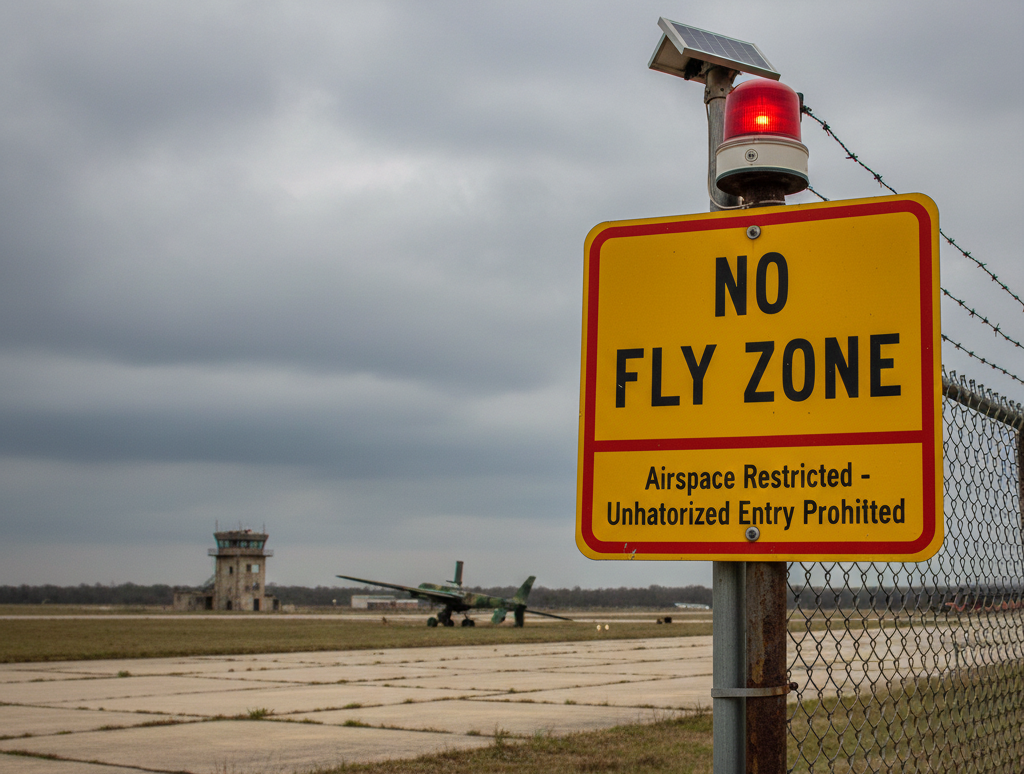
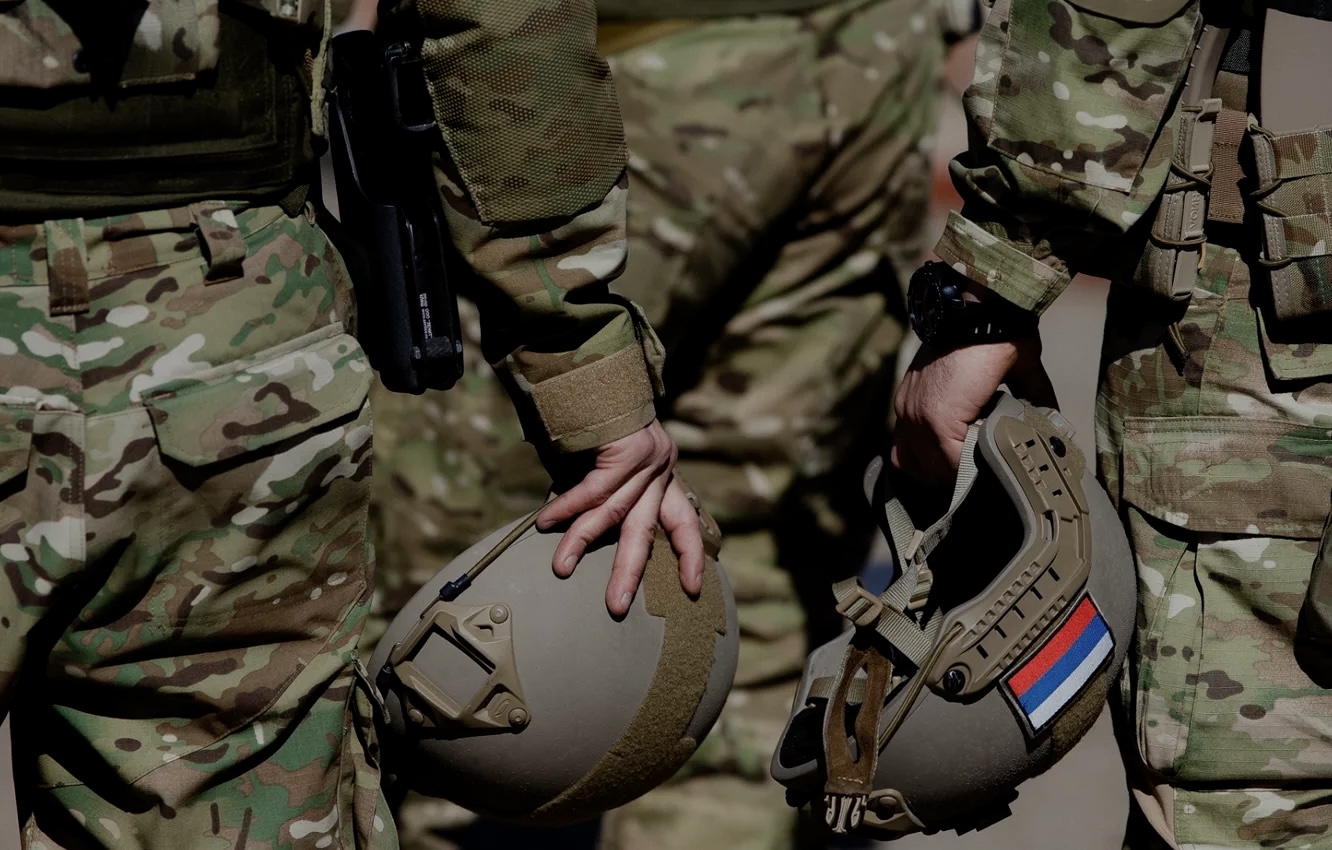

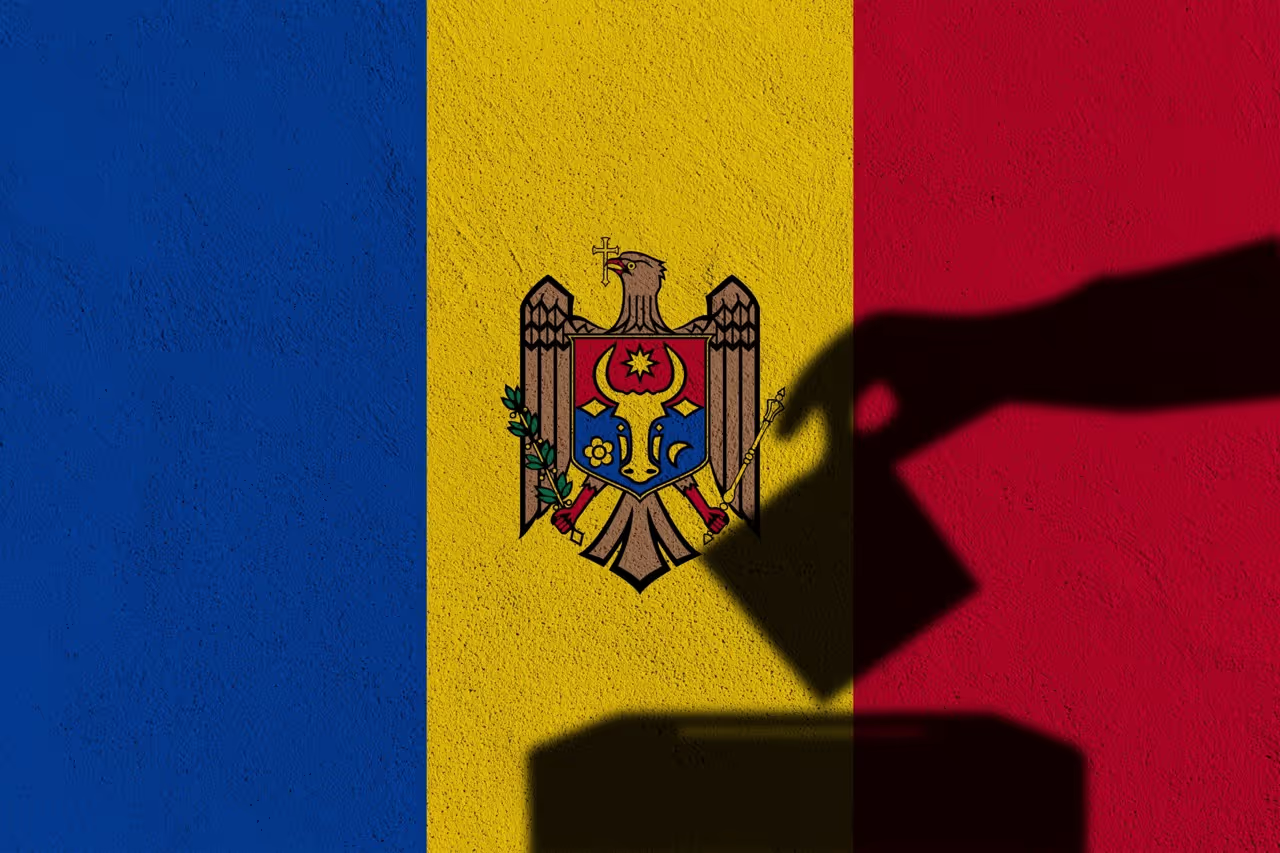
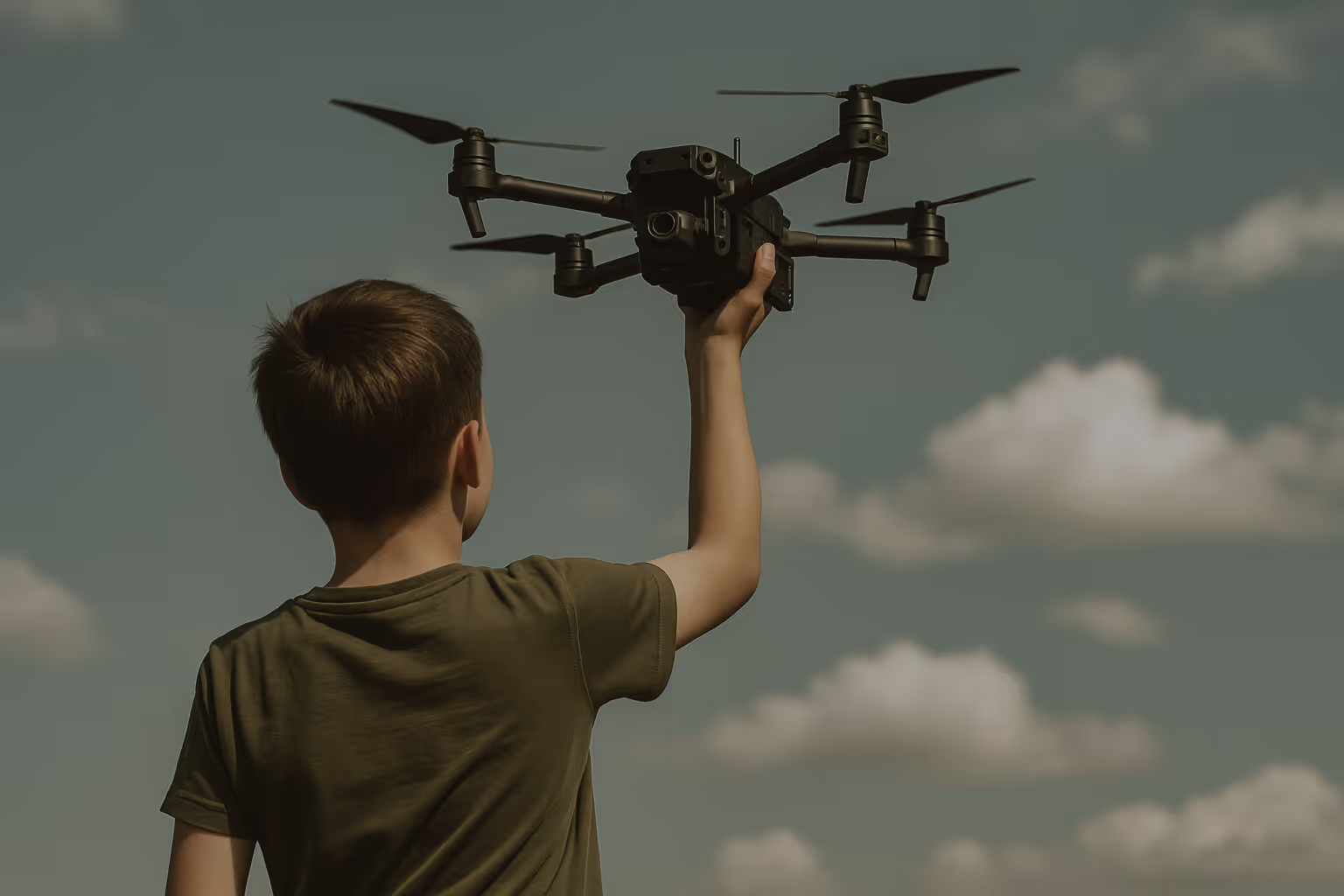
.avif)


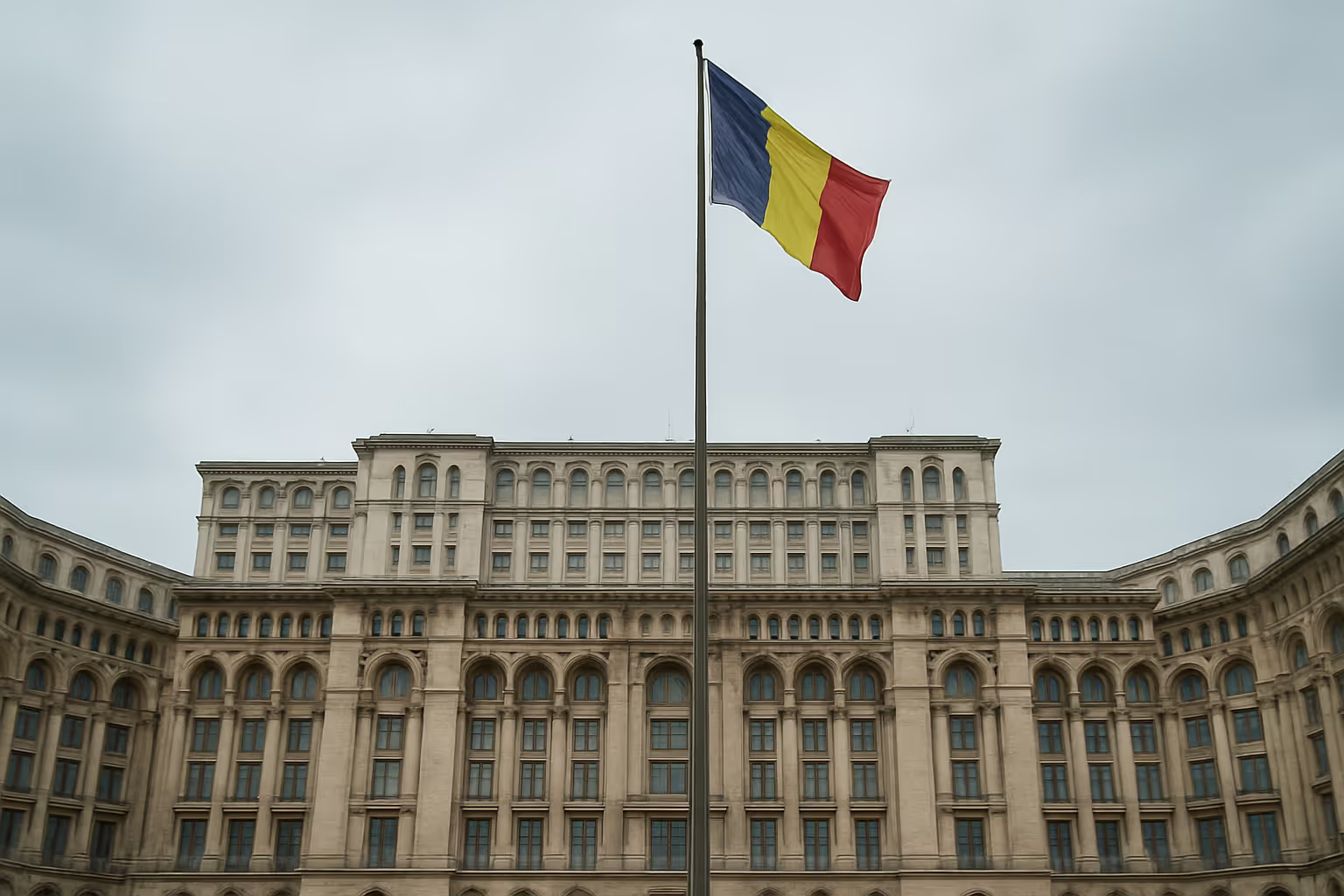
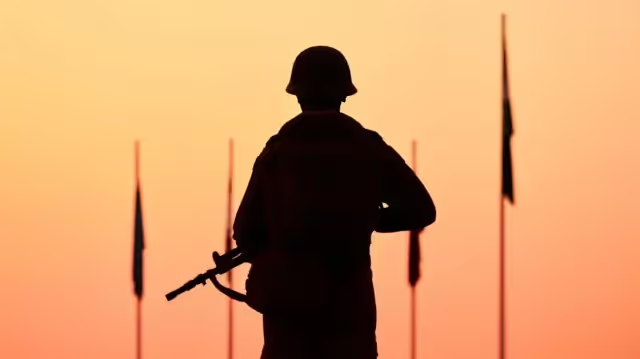
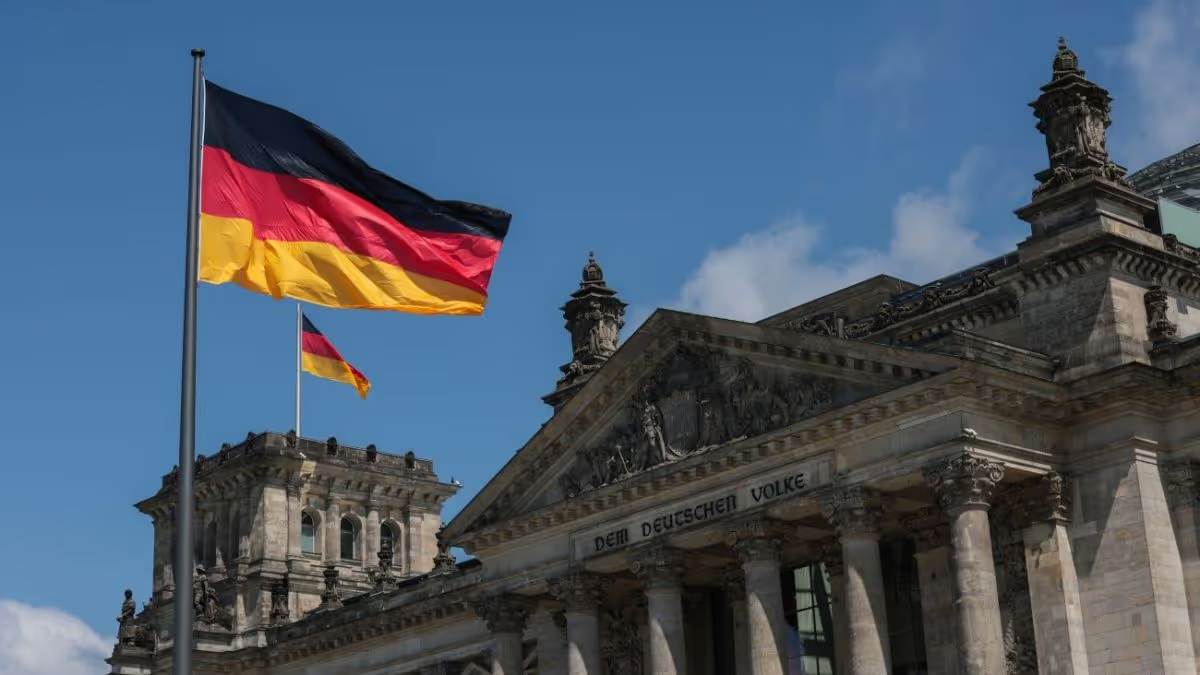
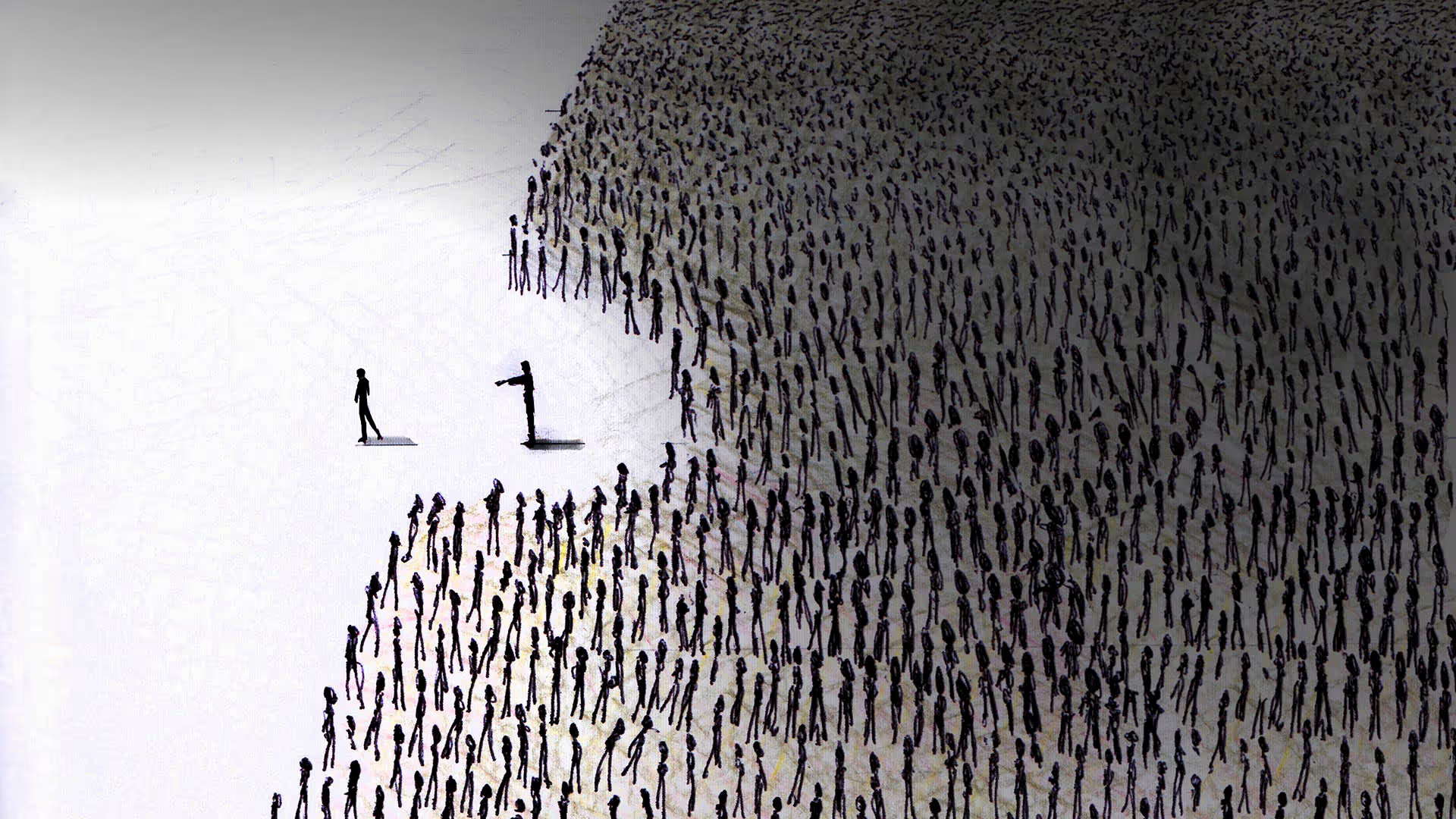
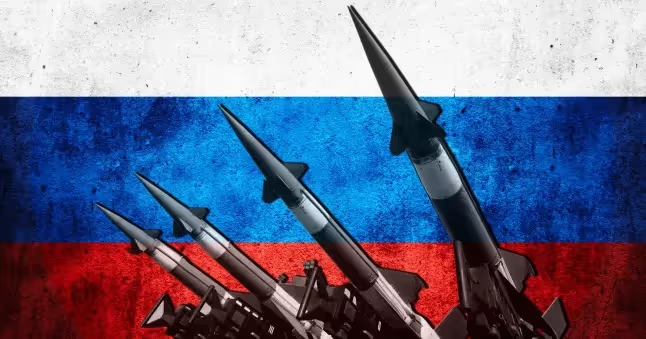
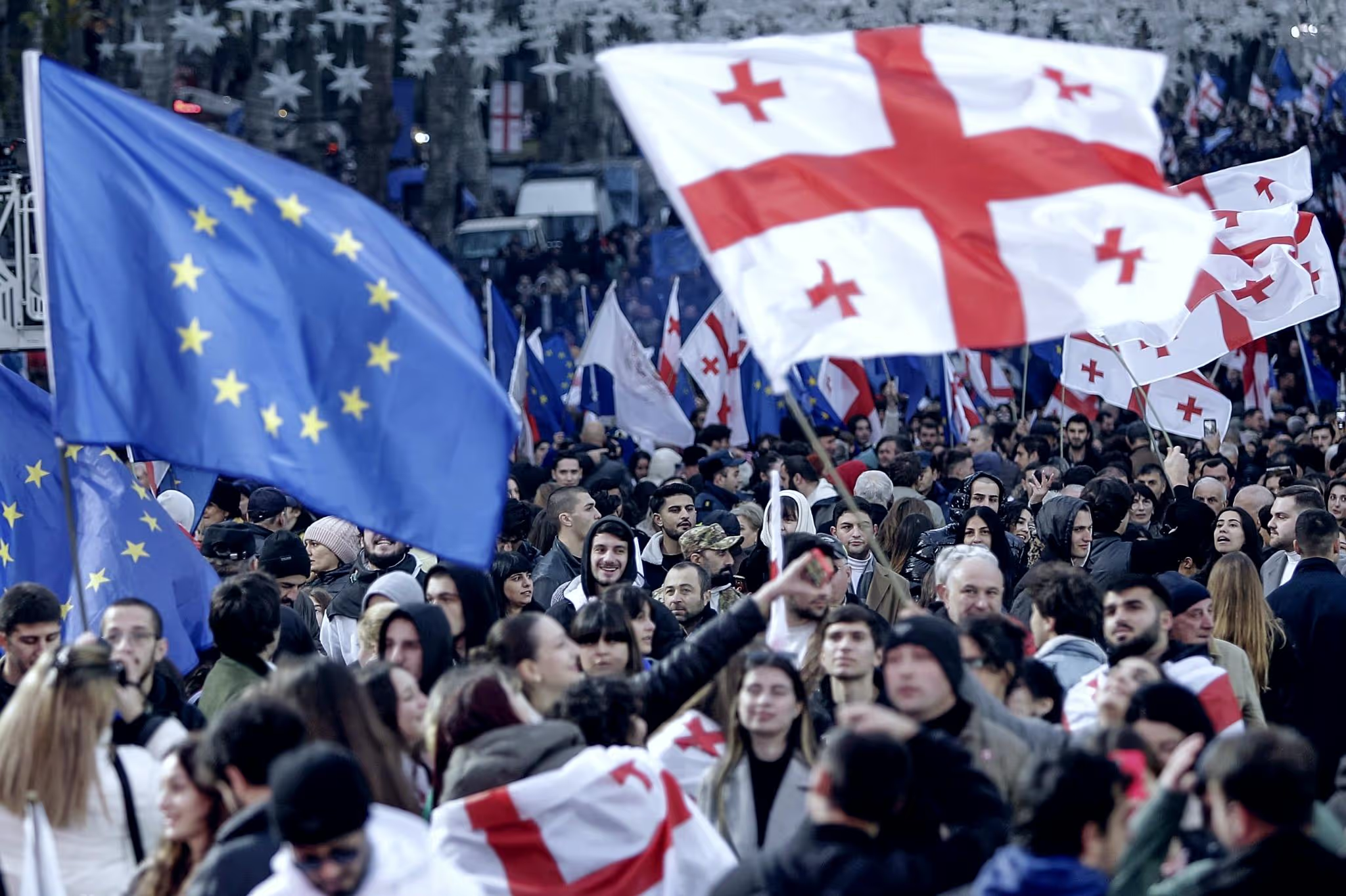
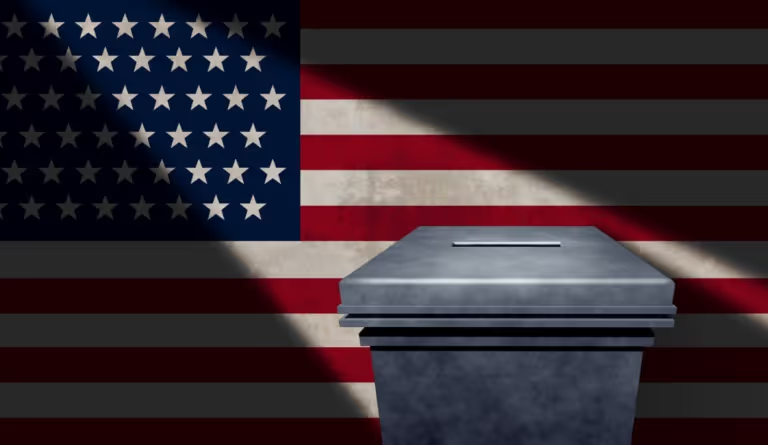



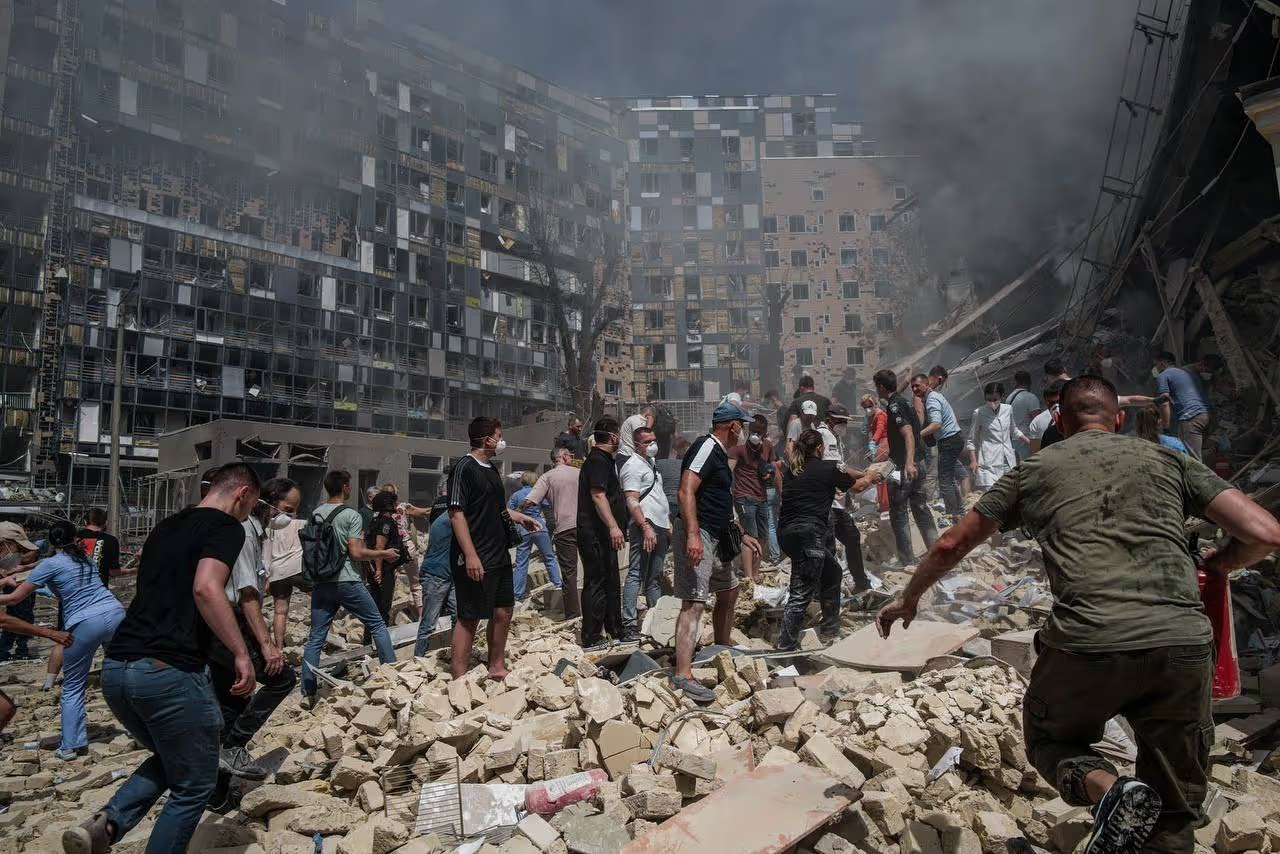

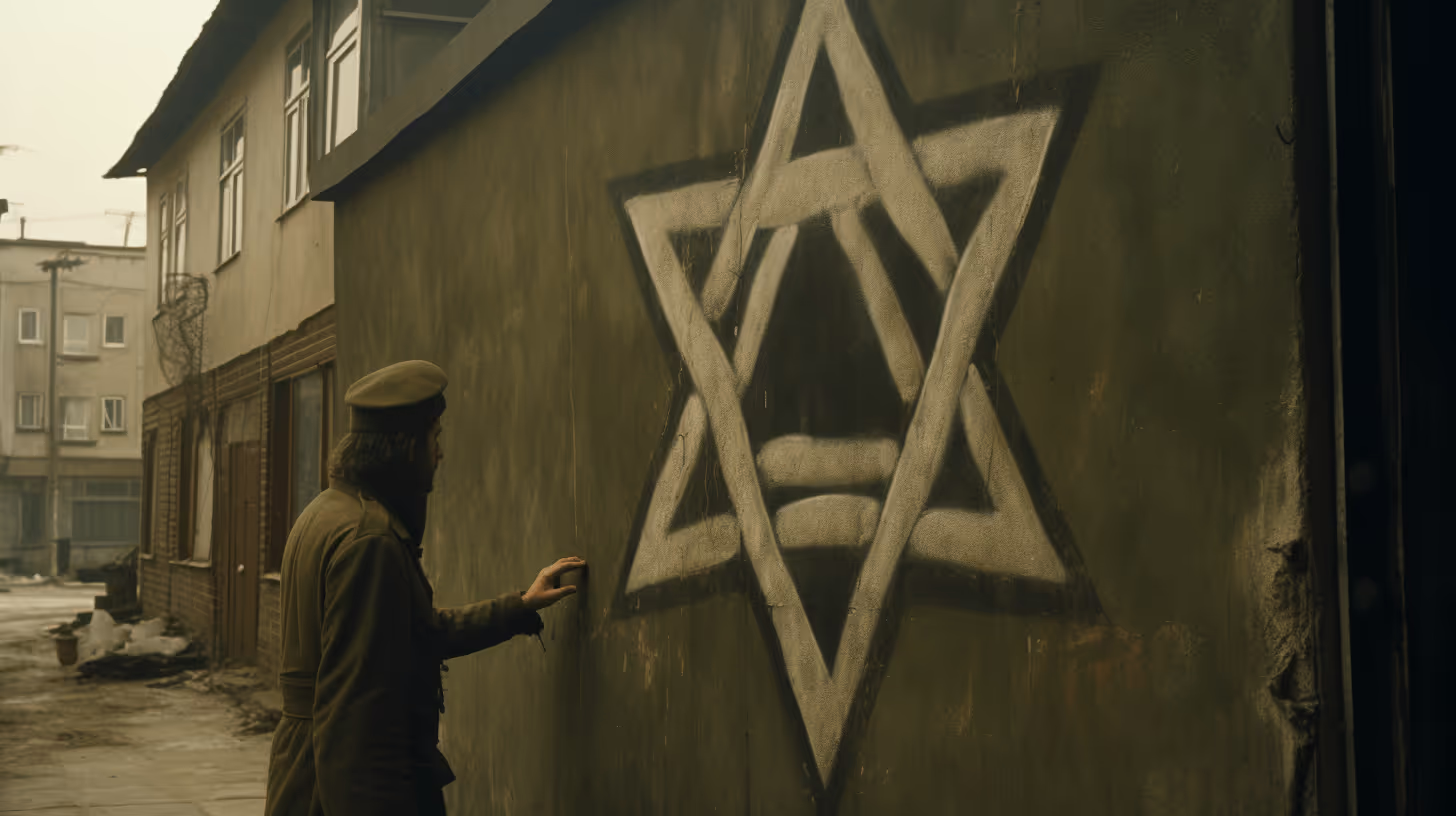
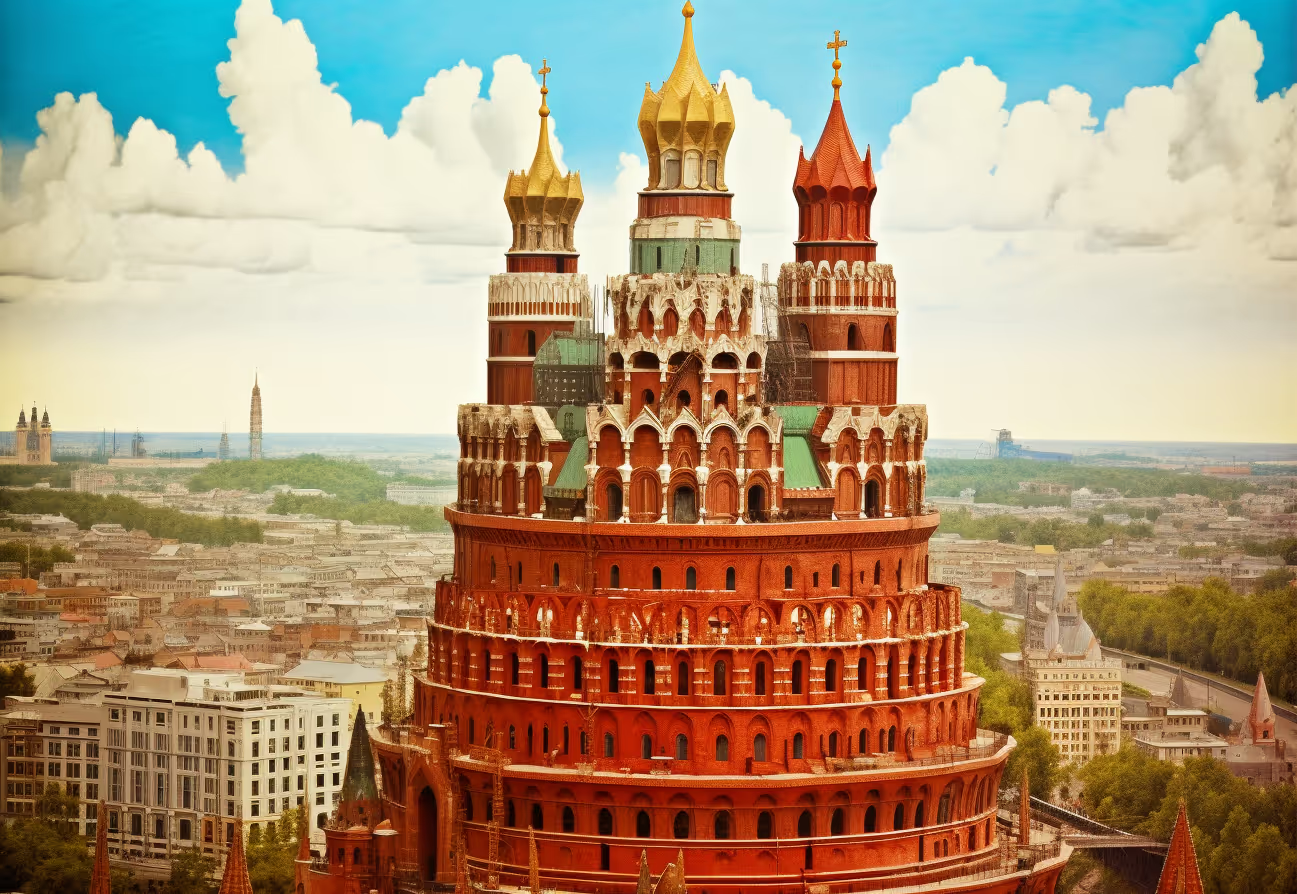
.avif)
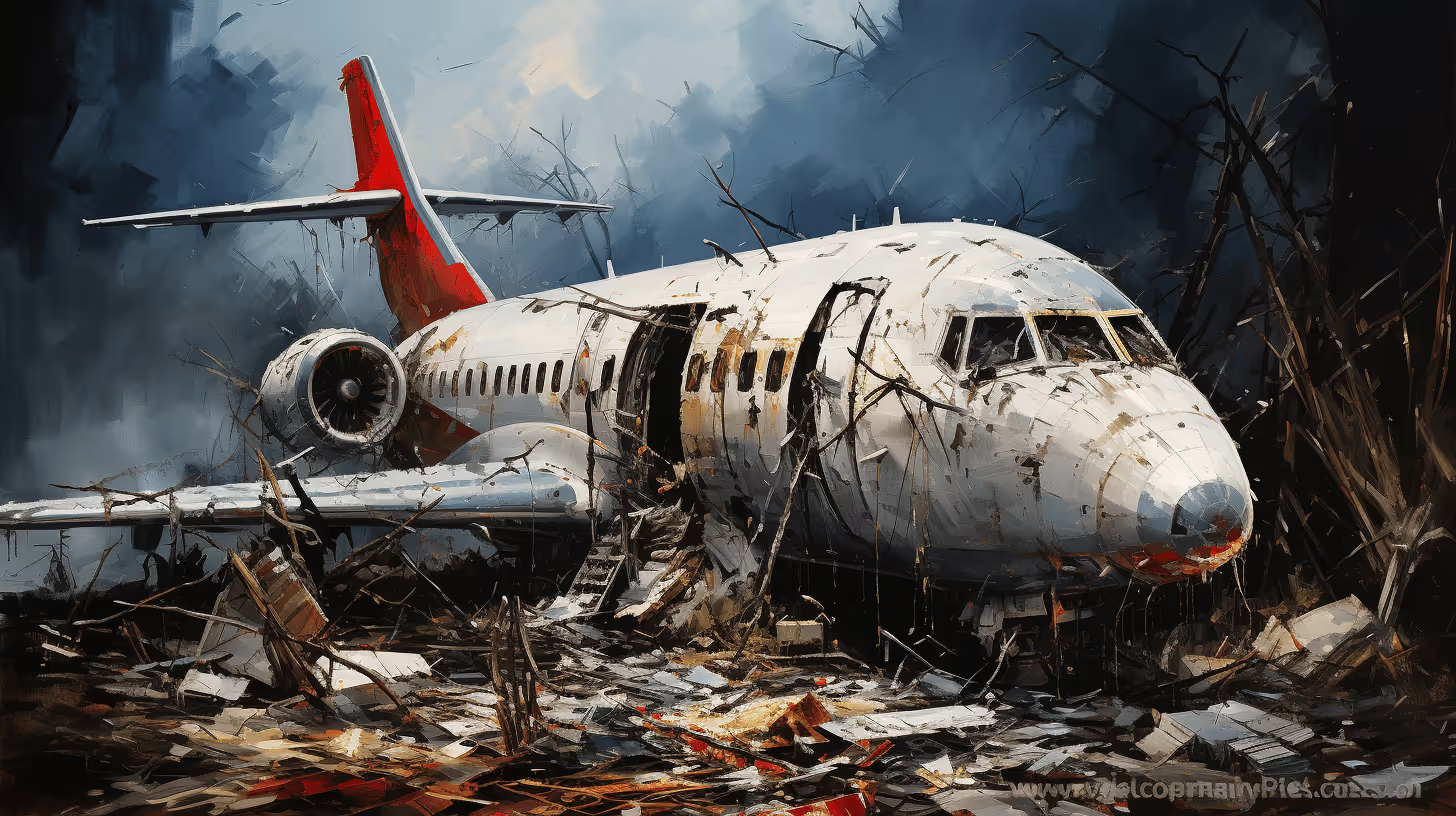
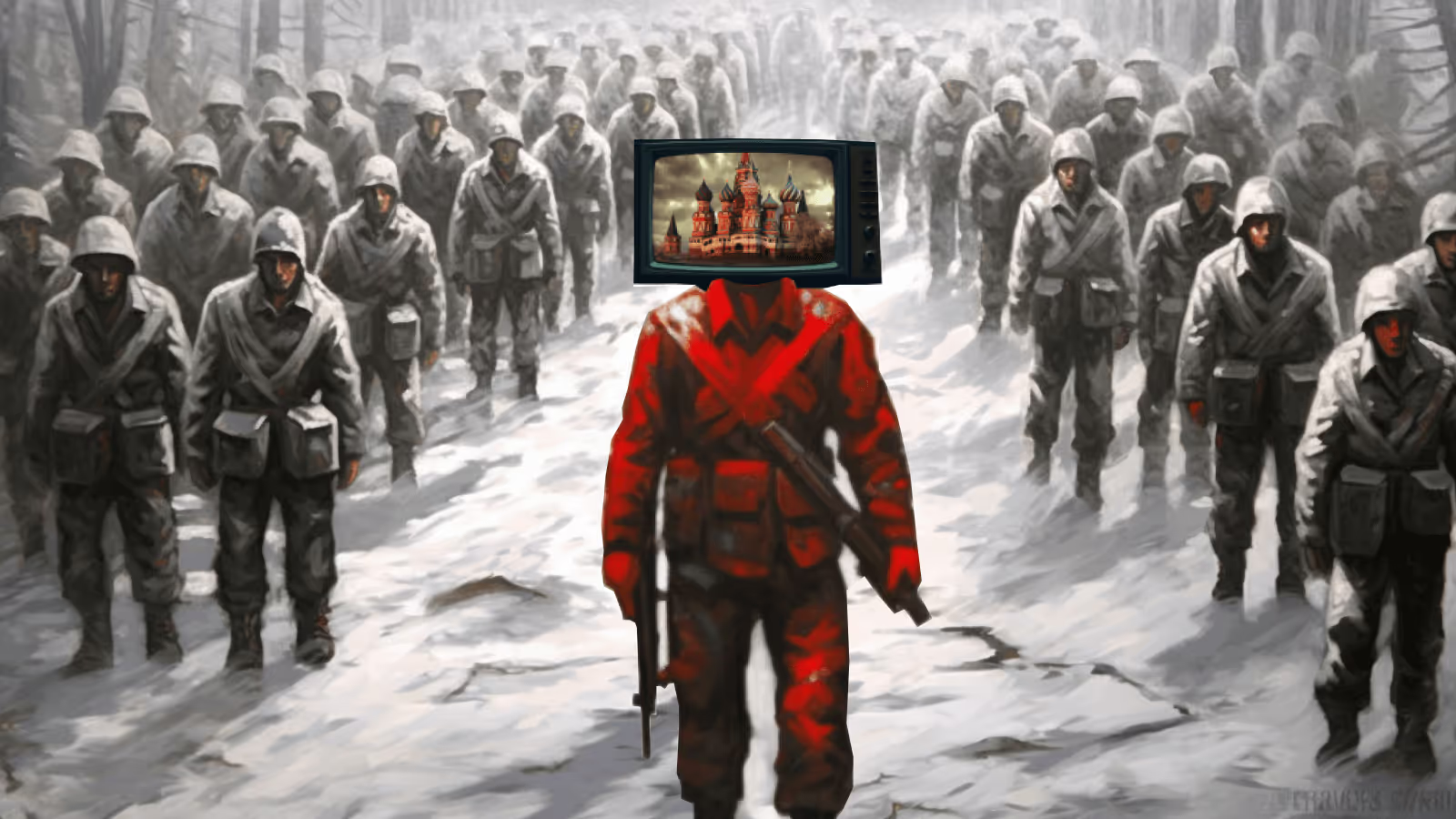
.avif)
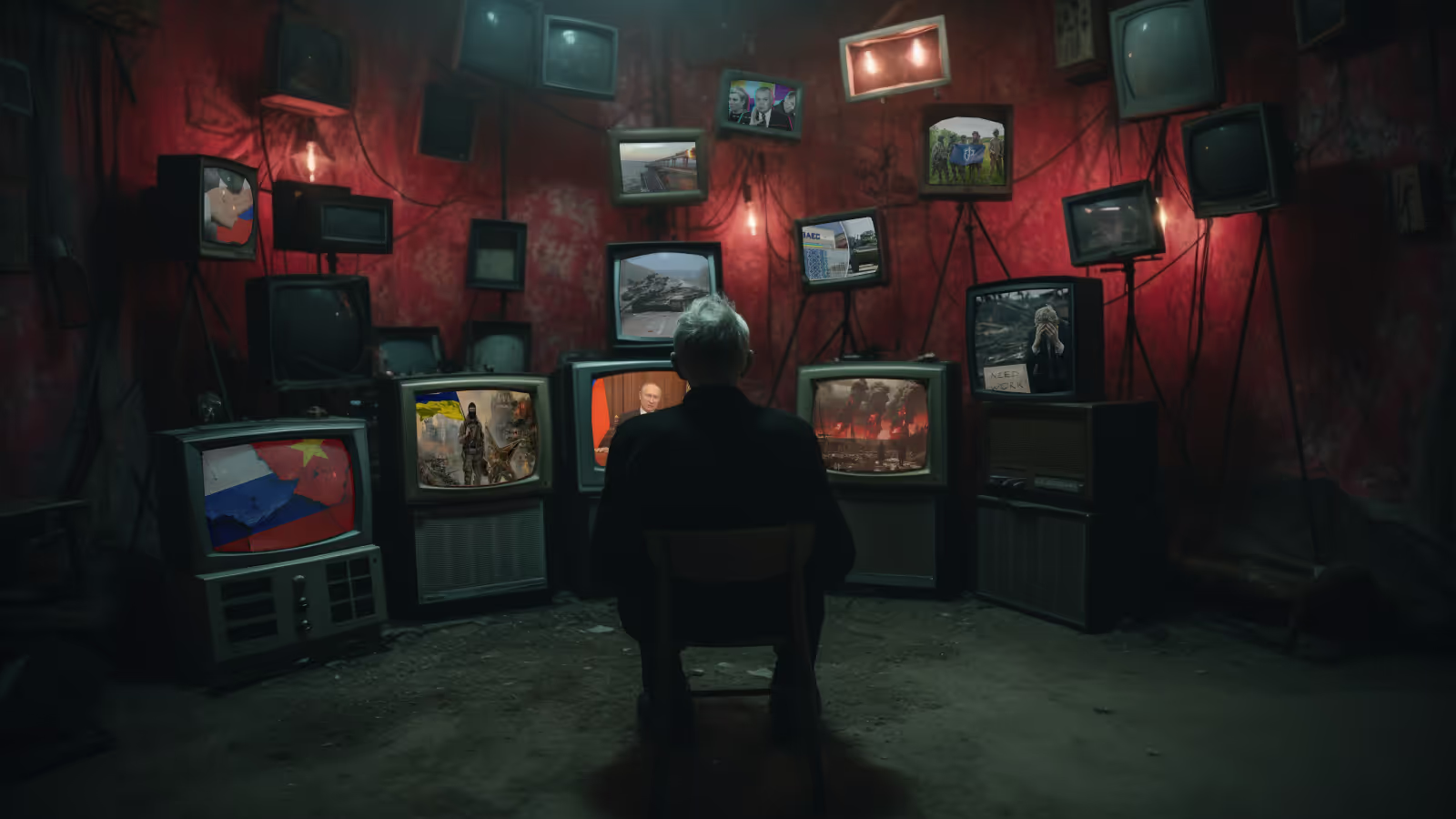
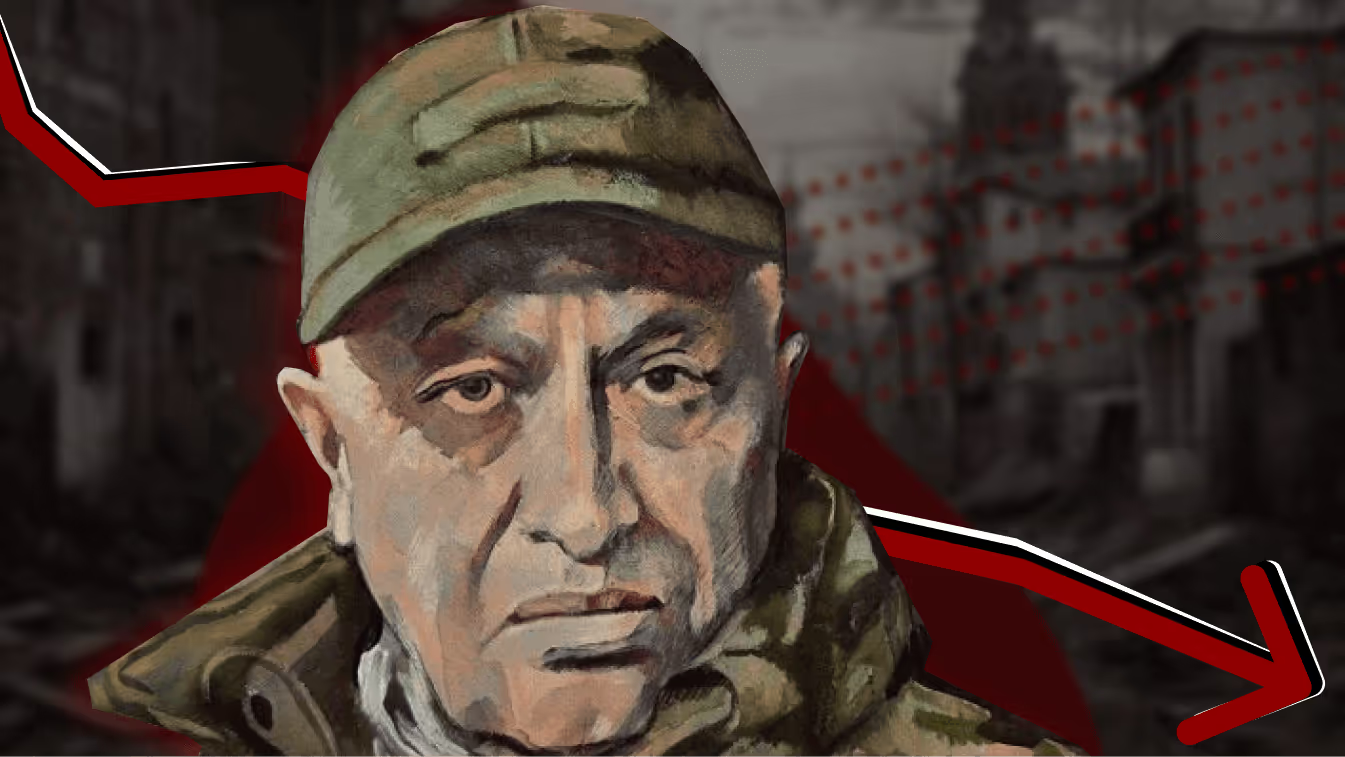
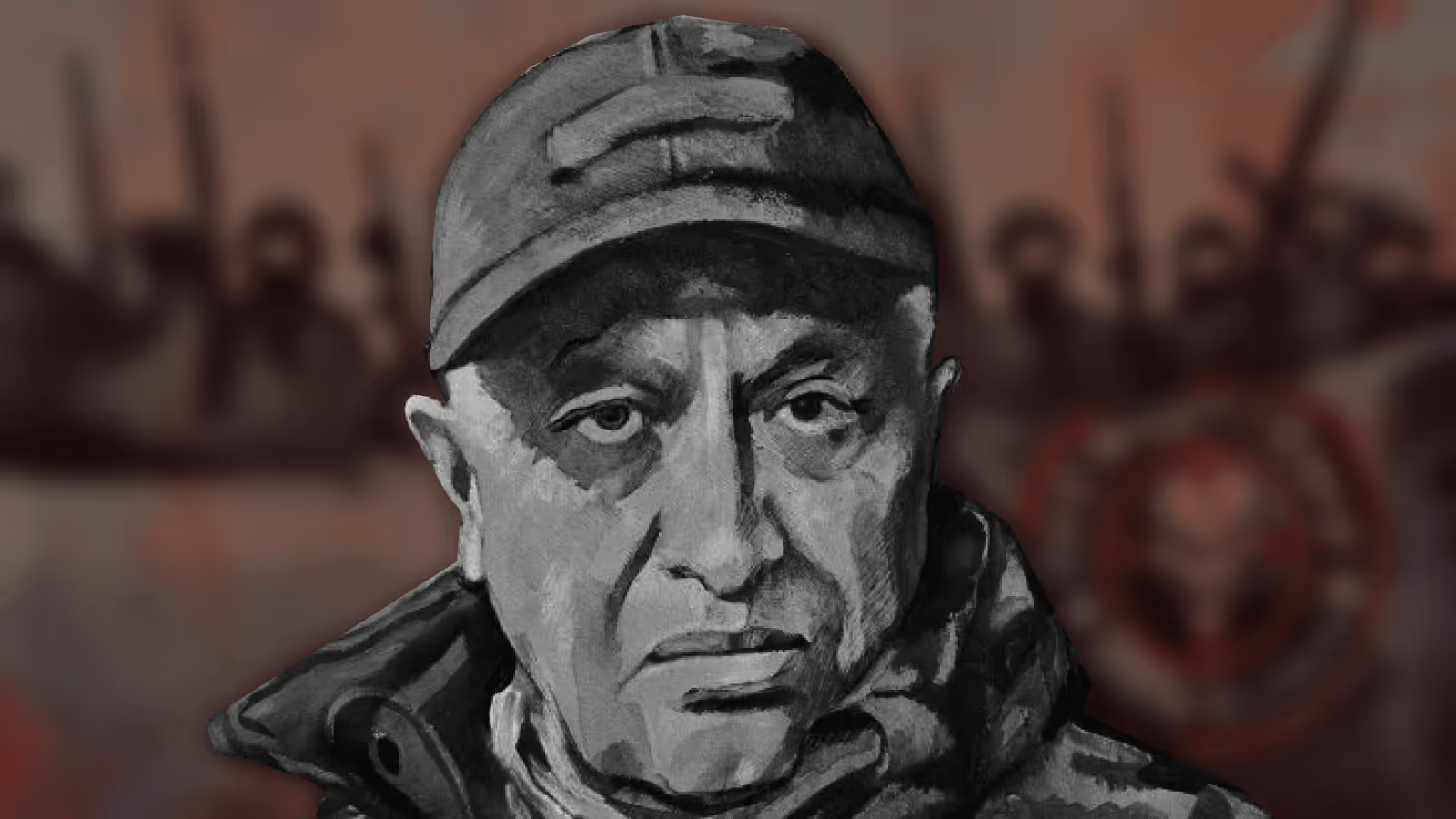
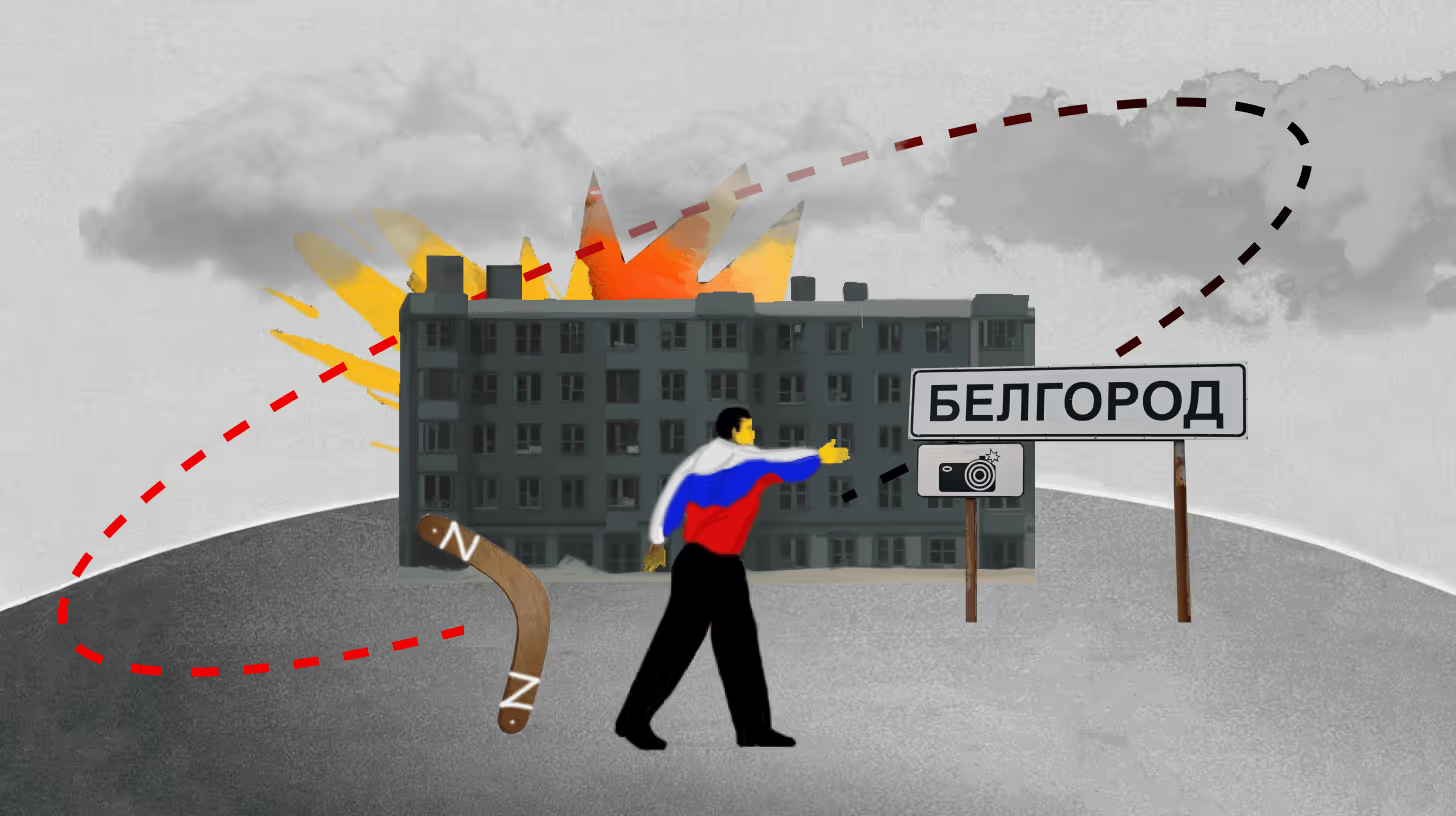

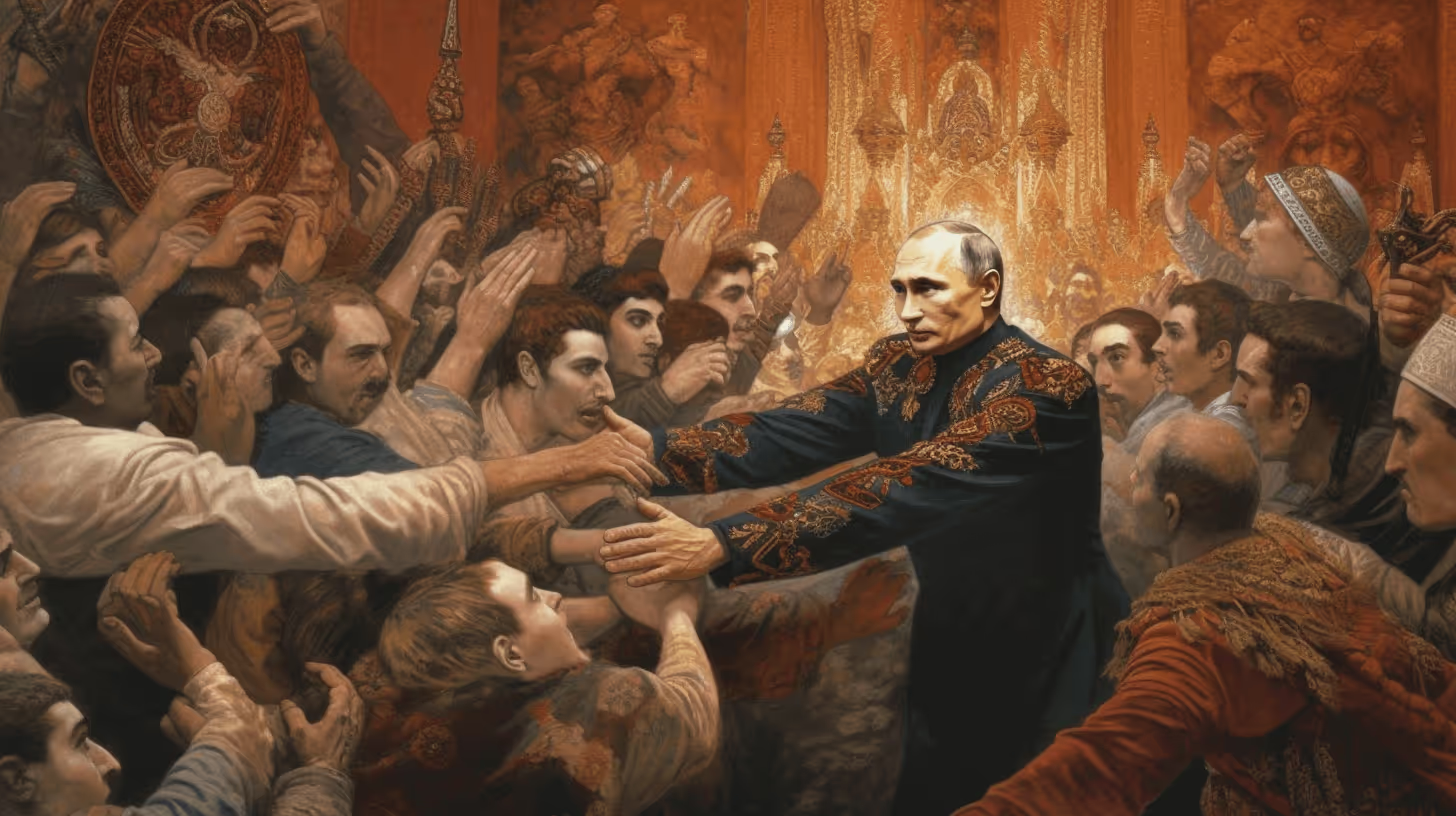
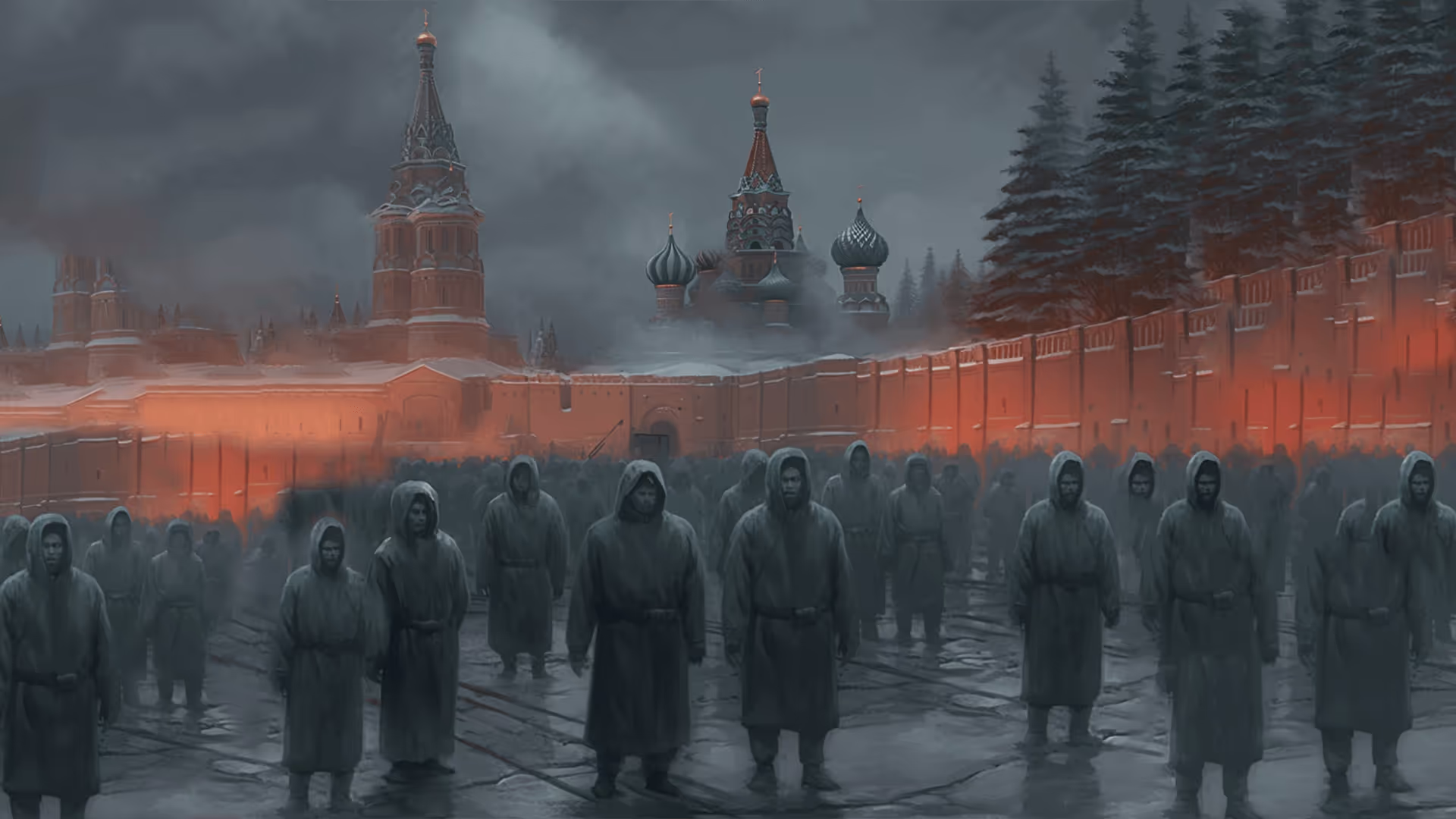

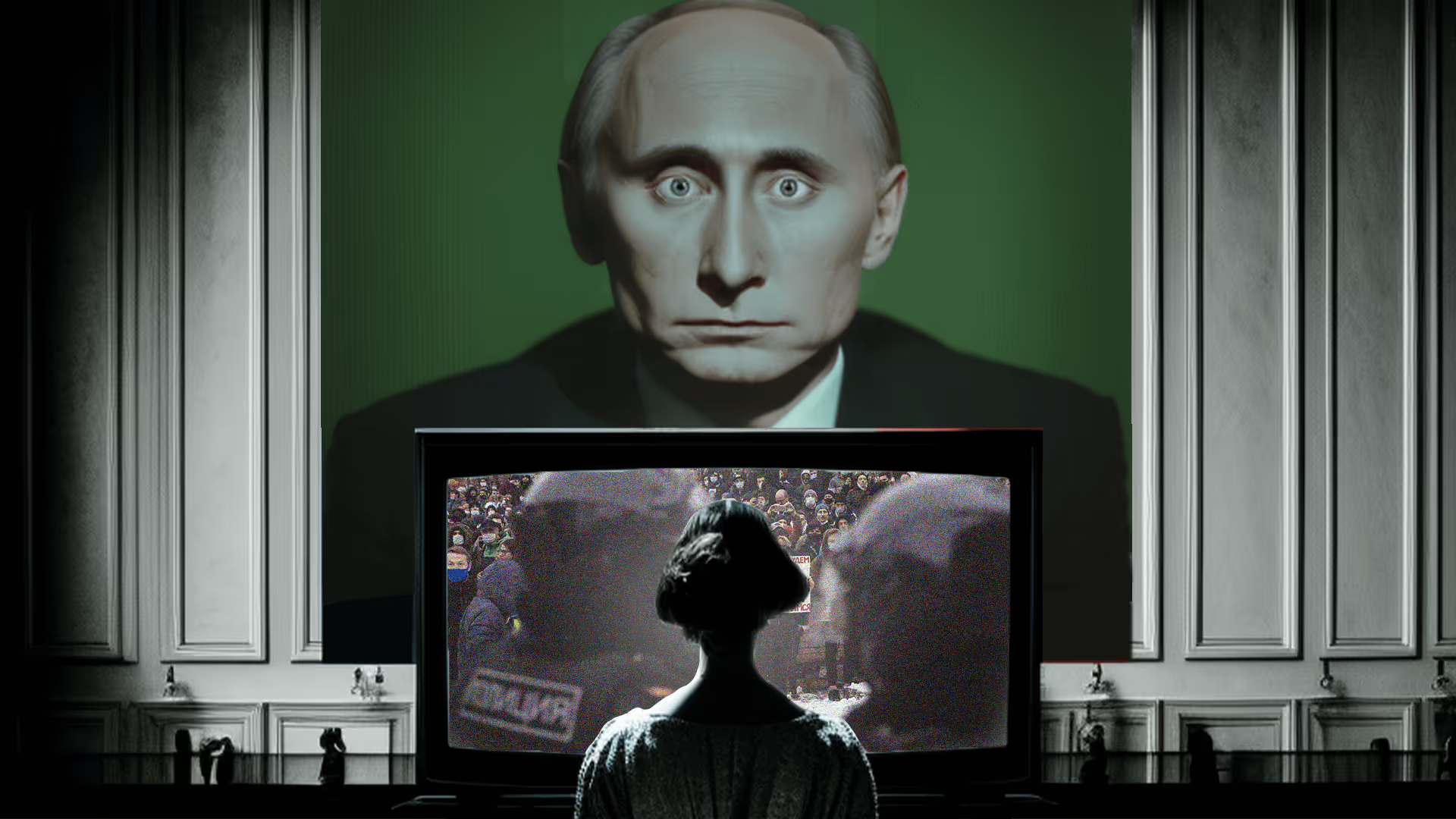



-01-2.avif)
-01.avif)
-01.avif)




-01%25202-p-500.avif)







